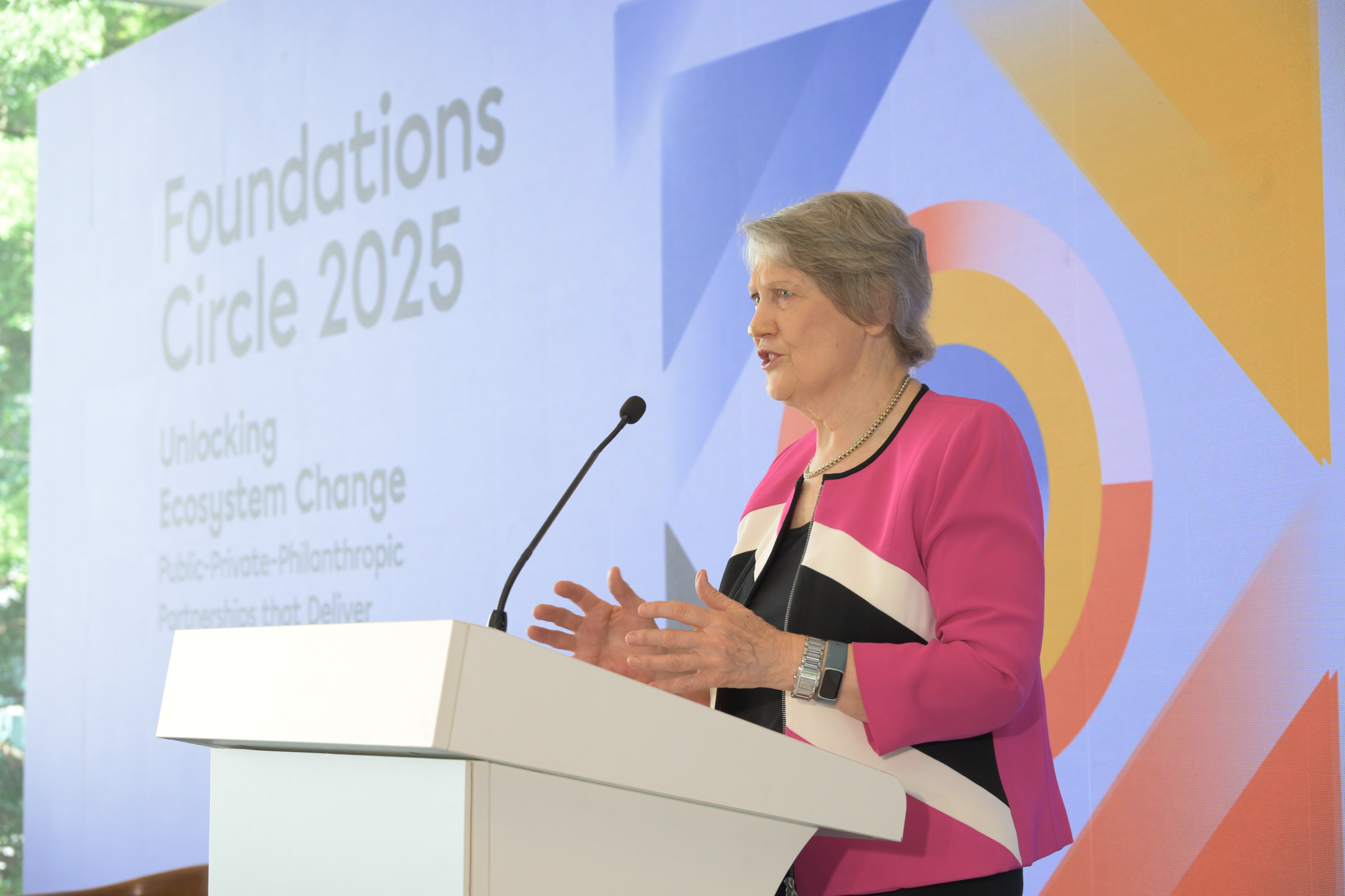

WHAT WE'RE HEARING: Rt Hon Helen Clark on partnerships for development
At our recent flagship Foundations Circle event in Hong Kong, Rt Hon Helen Clark—former Prime Minister of New Zealand and former Administrator of the UN Development Programme—delivered a keynote on the continuing importance of cross-sector partnerships in addressing today’s global challenges. Drawing on her leadership across international platforms, she inspired an audience of more than 70 philanthropic leaders from across Asia and beyond, sparking dynamic exchanges on the future of development partnerships.
Here are five key insights that emerged from her address:
- Complex challenges require collective solutions.
Transformative solutions to global challenges—such as climate adaptation and pandemic preparedness—require coordinated efforts across sectors. No single actor can achieve meaningful change alone; partnerships must be designed to amplify collective capacity.
- Traditional aid is evolving.
The landscape of official development assistance is shifting. As traditional grant-based aid declines, models like Global Public Investment and cross-sector partnerships—such as Gavi, the Vaccine Alliance, and the Partnership for Maternal, Newborn & Child Health—offer scalable, inclusive approaches to meet rising global needs.
- Philanthropy must serve as a connector.
Funders have a unique role to play in convening diverse actors across local, national, and regional levels. Philanthropy can help build more resilient and sustainable solutions—for example, by supporting women’s, youth, and local entrepreneurship to drive inclusive growth, and by advancing fair ecological and energy transitions and disaster risk reduction in Asia.
- Innovation matters more than scale.
Philanthropy’s influence is not defined by the size of its funding, but by its willingness to take risks and innovate. Strategic partnerships and bold initiatives can unlock outsized impact in areas like maternal health, climate resilience, and disaster preparedness—for example, by supporting community-level disaster risk mitigation across Asia, “ seen as the world’s most disaster-prone region,” where philanthropy is increasingly driving whole-of-system approaches to keep communities safe.
- Leadership must take the long view.
Addressing existential challenges such as climate change, pandemics, and AI requires long-view leadership committed to the global common good. Long-view leadership is essential to mobilise innovative financing models such as Global Public Investment, strengthen international collaboration, and ensure sustained investment in global common goods like climate resilience, pandemic preparedness, and equitable development.

